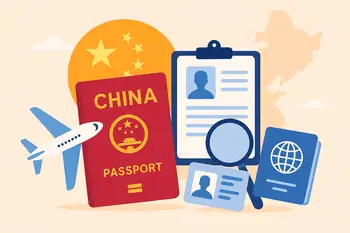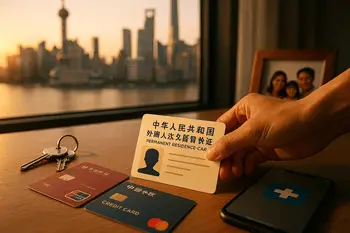
Traveling or living in China offers countless opportunities to immerse yourself in its rich culture, diverse landscapes, and rapid urban development.
However, safeguarding your personal belongings is essential to ensure a stress-free experience.
Whether you’re an expat settling in or a tourist exploring, this guide provides practical tips to protect your possessions, from everyday valuables to important documents, while addressing cultural nuances and regional differences.
Why Protecting Your Belongings in China Matters
China is generally a safe country, with low violent crime rates compared to many other places.
However, petty crimes like pickpocketing, bag snatching, and scams can occur, particularly in crowded areas, tourist hotspots, or public transportation hubs.
Understanding these risks and taking proactive measures ensures your belongings stay secure, giving you peace of mind while enjoying your time in China.
| Crime Type | Common Locations | Examples |
|---|---|---|
| Pickpocketing | Public transportation, tourist hotspots | Wallets or phones stolen in crowds |
| Bag snatching | Busy streets, markets | Bags grabbed by opportunists |
| Scams | Tourist areas, online platforms | Overpriced tea houses, fake products |
Sources:
1. Understanding Common Risks
To safeguard your belongings effectively, it’s crucial to know where and when risks are most likely to arise:
- Public Transportation: Crowded buses and subway systems in cities like Shanghai or Beijing are prime spots for pickpockets, especially during rush hours.
- Tourist Hotspots: Popular attractions like the Great Wall, Tiananmen Square, or Zhangjiajie often attract opportunists targeting distracted visitors.
- Markets and Busy Streets: Bustling areas like Nanjing Road or local markets can be breeding grounds for bag snatchers.
Tips:
- Stay alert in crowded areas and avoid distractions like using your phone.
- Keep your belongings close to your body and in sight at all times.
2. Protecting Your Valuables
Keep Bags and Pockets Secure
- Use anti-theft backpacks with hidden zippers, RFID-blocking compartments, and slash-resistant materials.
- Avoid keeping valuables in outer pockets. Use secure, zipped inner pockets instead.
- Wear shoulder bags across your body with the opening facing inward.
Minimize What You Carry
- Carry only essentials—leave extra credit cards, large amounts of cash, and unnecessary documents in a safe place.
- Digitalize key items like tickets and hotel confirmations to reduce the risk of losing physical copies.
Be Mindful of Your Phone
- Use a phone lanyard or grip to prevent accidental drops or theft.
- Avoid placing your phone on tabletops in public areas, as it can be easily snatched.
| Tip | Why It’s Important |
|---|---|
| Use anti-theft backpacks | Prevents pickpocketing in crowded areas |
| Minimize what you carry | Reduces the impact of theft or loss |
| Secure your phone | Phones are a common target for thieves |
Recommended Products:
3. Safeguarding Your Documents
Documents like passports, visas, and work permits are critical for expats and travelers in China.
Losing them can lead to significant stress and delays.
Tips for Protecting Documents
- Carry Photocopies: Always have photocopies of your passport, visa, and other critical documents. Keep the copies separate from the originals.
- Use a Travel Wallet: Store your documents in a waterproof, secure travel wallet that stays close to your body.
- Invest in a Safe: If staying long-term, consider a portable travel safe for your home or hotel room. Many hotels also provide in-room safes.
Digital Backups
- Scan your important documents and save them in a secure cloud service (e.g., Google Drive, Dropbox) or an encrypted file.
Sources:
4. Protecting Electronics
Laptops, cameras, and other electronics are valuable both financially and in terms of the information they store.
Preventive Measures
- Use sturdy, padded cases to protect against physical damage during travel.
- Label your devices with your contact information (email or phone number) in case they are misplaced.
- Encrypt your devices and secure them with strong passwords to protect your data.
Insurance
- Invest in travel or personal property insurance to cover the cost of replacing expensive electronics in case of theft or damage.
Recommended Insurance Providers:
5. Staying Vigilant Against Scams
Scams targeting tourists or newcomers are not uncommon in China.
Here are some to watch out for:
| Scam Type | Description |
|---|---|
| Tea House Scam | Friendly strangers invite you for tea, leading to an exorbitant bill. |
| Taxi Overcharging | Unofficial taxis charge inflated fares. Use apps like Didi or official taxis. |
| Street Vendors | Vendors sell counterfeit products or offer “too good to be true” deals. |
Tips:
- Politely decline invitations from strangers in tourist areas.
- Use reputable ride-hailing apps like Didi.
- Avoid purchasing items from unverified vendors.
Further Reading:
6. Choosing Accommodation Wisely
The safety of your belongings starts with where you stay.
Hotels
- Opt for hotels with good security ratings and reviews.
- Use in-room safes for valuables.
- Avoid leaving expensive items or documents in plain sight.
Rental Apartments
- Install locks or security bars on windows, especially if you’re on the ground floor.
- Consider using smart locks for added security.
Sources:
7. Practical Tips for Expats
Living in China as an expat comes with its own set of challenges.
Bank Accounts
- Use secure online banking platforms and avoid carrying large amounts of cash.
Mail Safety
- Ensure packages are delivered to a secure location, such as a staffed reception desk.
Community Support
- Join expat groups on platforms like WeChat or Internations for firsthand advice and tips.
8. Emergency Preparedness
Even with the best precautions, accidents can happen.
What to Do If You Lose Something Important
- Report Theft: File a police report at the nearest Public Security Bureau (PSB). Bring a translator or use a translation app if needed.
- Contact Your Embassy: If your passport is lost, your home country’s embassy can assist with replacement and necessary documentation.
- Track Your Devices: Use tools like Find My iPhone or Google’s Find My Device to locate lost electronics.
Embassy Resources:
Conclusion
China is an incredible destination filled with opportunities to explore and grow.
By adopting these measures, you can enjoy your time without the stress of misplaced or stolen belongings.
From using anti-theft backpacks to staying vigilant against scams, these practical tips will ensure your personal items remain safe and sound.


